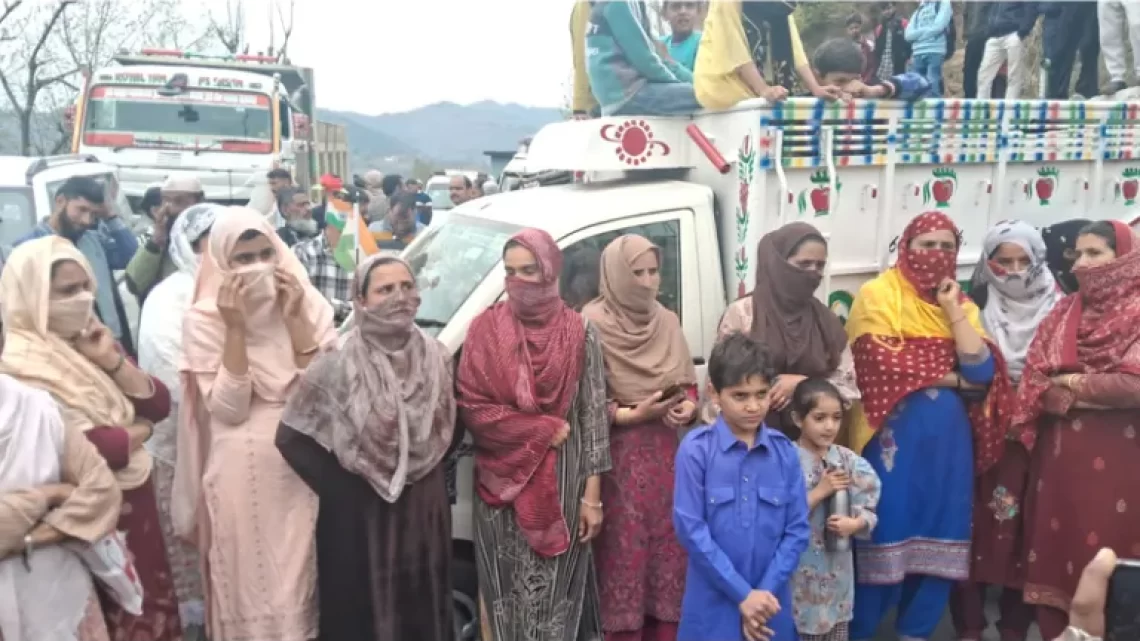
Rajouri Protest: Voices of Frustration in Indian Illegally Occupied Jammu and Kashmir Continues
March 22, 2024Residents of the Palma area in the Rajouri district of Indian illegally occupied Jammu and Kashmir recently took to the streets in a fervent display of frustration against what they perceive as governmental neglect of their basic needs. The protest, which garnered significant attention, highlighted the persistent issues of electricity and drinking water shortages plaguing the region.
The demonstrators, comprising both men and women, gathered to voice their grievances, emphasizing the dire consequences of the prolonged absence of essential utilities. Their primary concern revolved around the severe shortage of electricity, which had persisted unabated for over two weeks. Despite repeated pleas and appeals to the relevant authorities, the residents lamented the lack of tangible action or even acknowledgment of their plight.
Situated on the Rajouri Kotranka road, the protest took the form of a sit-in, effectively obstructing vehicular movement as a symbolic gesture of their frustration and determination to be heard. The blockade served as a tangible manifestation of the community’s collective discontent, drawing attention to the urgency of their demands for redressal.
The protesters articulated their grievances with a sense of urgency and exasperation, underscoring the blatant disregard exhibited by the concerned governmental agencies. Despite being confronted with a dire situation exacerbated by the absence of electricity for nearly three weeks, the local authorities appeared indifferent, failing to demonstrate any proactive measures to address the pressing issue.
In addition to the electricity crisis, the demonstrators also raised concerns regarding the scarcity of drinking water in the area, compounding the challenges faced by the community. This multifaceted crisis, encompassing both electricity and water shortages, underscores the systemic failures and neglect that have characterized the region’s governance.
The protest in Palma serves as a poignant reminder of the persistent challenges confronting the residents of Indian illegally occupied Jammu and Kashmir, who continue to grapple with the repercussions of governmental apathy and neglect. Despite being endowed with the right to essential services, including electricity and clean water, these fundamental needs remain unmet, perpetuating a cycle of disenchantment and disillusionment among the populace.
The resilience and determination exhibited by the protesters in Palma reflect the depths of their frustration and their unwavering resolve to demand accountability from those in power. Their collective action not only highlights the immediacy of the crisis but also underscores the imperative for urgent intervention to alleviate the suffering endured by the marginalized communities in the region.
As the protest reverberates beyond the confines of Palma, it serves as a rallying cry for solidarity and action, compelling both local and international stakeholders to confront the systemic injustices and inequities perpetuated in Indian illegally occupied Jammu and Kashmir. The voices of the protesters resonate not only within the confines of their locality but also echo the broader struggle for justice and dignity in the face of adversity.

